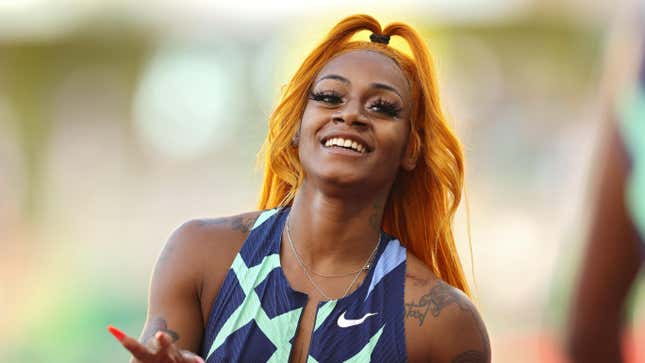Let Sha’Carri Richardson Run
Richardson's spot at the Tokyo Olympics might be in jeopardy after testing positive for marijuana
Latest

Sha’Carri Richardson became a national sensation when she dominated the Olympic qualifying 100-meter race in June, acrylics and all. But now her Olympic spot might be taken just because she tested positive for marijuana.
The New York Times reports that Richardson’s positive test automatically invalidated her results in last month’s event. According to the United States Anti-Doping Agency (USADA), Richardson agreed to a one-month suspension, which the Times notes “could clear her in time to run in the 4×100 meter relay that takes place later in the Games.” But that’s only if she’s named to Team USA.
In an interview on the Today show Friday, a visibly upset Richardson admitted that she takes full responsibility for her actions, but provided context to why she consumed marijuana in the first place: When she was in Oregon for the Olympic trials, she received news that her biological mother died suddenly. Richardson said the news “triggering” and sent her “into a state of emotional panic.”
-

-

-

-

-

-

-

-

-

-

-

-

-

-

-

-

-

-

-

-

-

-

-

-

-

-

-

-

-

-

-

-

-

-

-

-

-

-

-

-








































